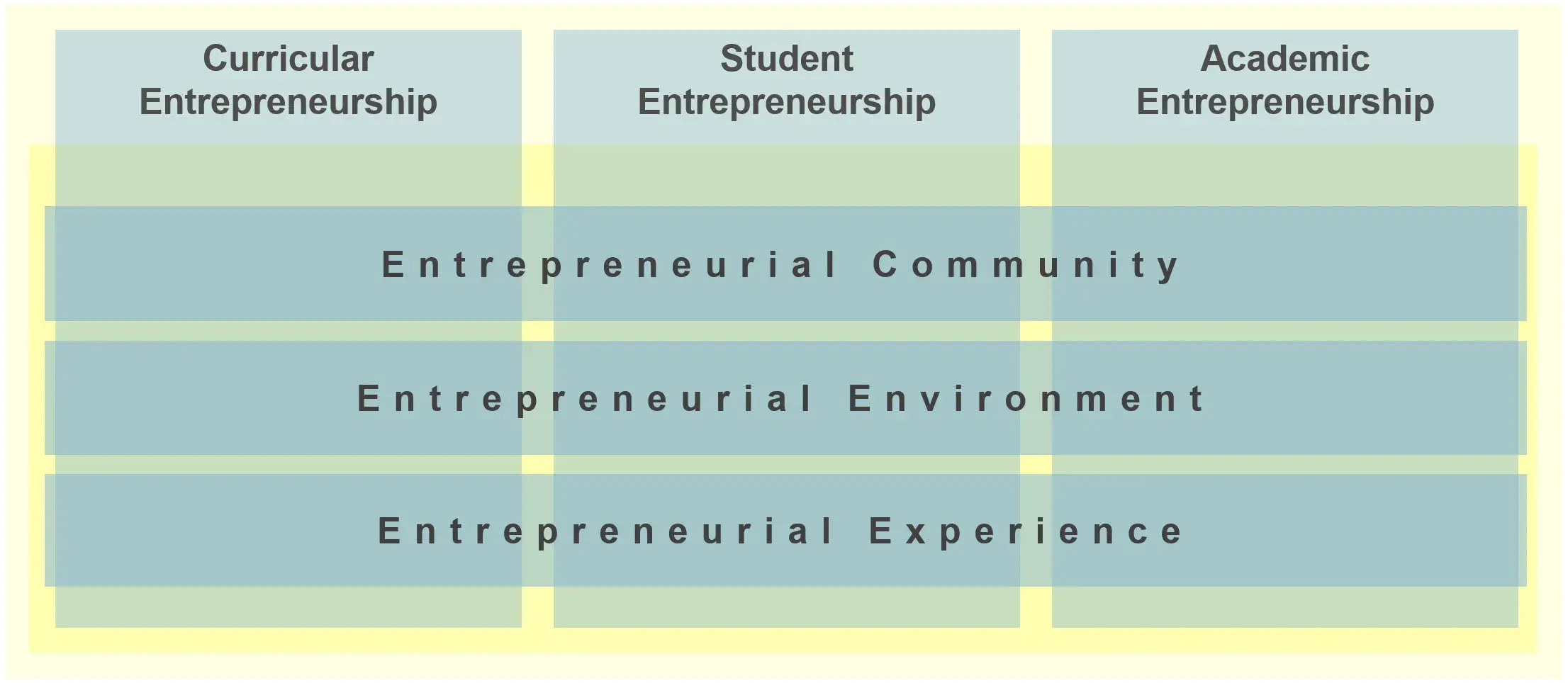Entrepreneurial University
The transformation taking place in many industries, practices and businesses requires staff with an entrepreneurial skill- and mindset. ZHAW aspires to be the place where entrepreneurial thinkers and doers meet up, thrive and grow. We want to ignite the hearts and minds who will boldly shape our future.

Design Framework of ZHAW Entrepreneurial University

Key Principles for Implementation?
The principles for implementation follow three building blocks, namely
1. Transforming within
- Opening our processes to allow for innovation and transformation.
- Leading by example: Ensure that staff, researchers and tutors have space and time to engage in projects contributing to the transformation.
- Fostering an entrepreneurial mindset through collaboration in cross-functional as well as inter- and transdisciplinary teams.
2. Engaging with our stakeholders, within and outside
- Programs building on open innovation formats inviting in people with different perspectives.
- Building trustworthy partnerships across disciplines and organizational borders.
- Open discussion and co-creation formats with industry and society.
3. Enhancing the student experience
- Create means for students to take on more responsibility for their learning journey.
- Offer (extracurricular) activities for students from different study fields to meet and develop their entrepreneurial skill- and mindset.
- Design spaces and labs for students to experiment, prototype, learn through failure and showcase their favorite projects they are passionate about.
„
«Ideas are easy, implementation is everything. And it takes a team to win.»
By John Doerr
What is the Key Mindset for Implementation?
- Attract and nurture good people. They want to grow through tackling difficult problems. They desire to be given the freedom and responsibility to find ways and build teams to implement great ideas.
- Overcommunicate your vision and goals. People want to hear them repeatedly at different occasions.
- Lead fair processes, e.g. communicate transparently, explore alternatives, recognize people’s engagement and explain your decisions.
- Co-create and collaborate on solutions. Listen to different perspectives with an open mind.
- Think and act in systems. The ability to consider how parts influence and relate to one another within a whole, leading to an enhanced collaboration between all the actors involved.
- Celebrate diversity. Trans- and interdisciplinary teams and solutions considering entrepreneurship in all its aspects are promoted.